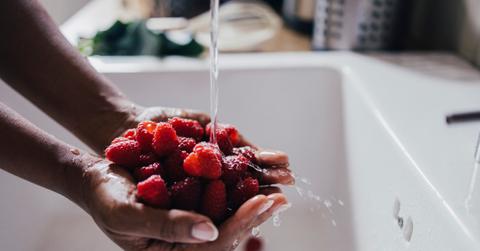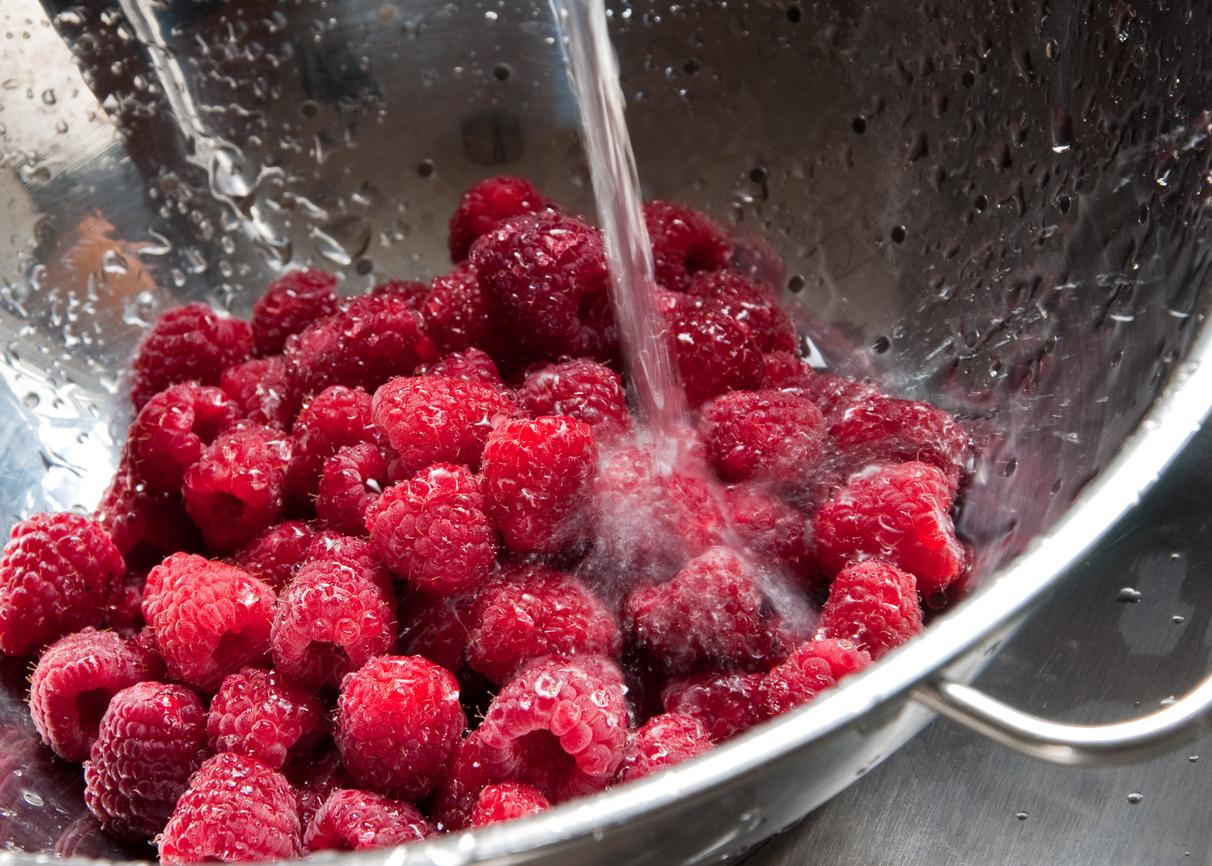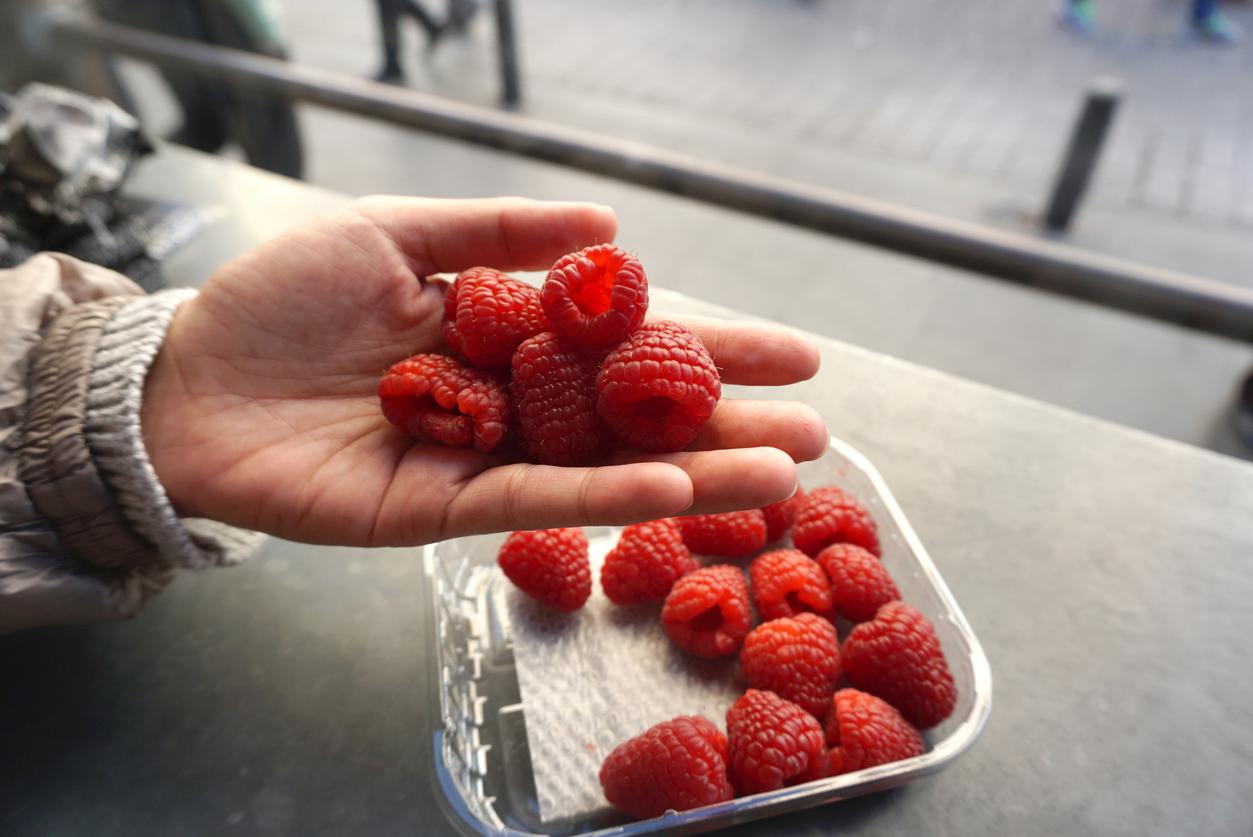How to Clean Raspberries and Keep Them Bug-Free: Two Easy and Effective Methods
Rinsing your raspberries will remove some dirt, but a thorough deep cleaning can ensure that almost all of the grime is eliminated.
Published April 11 2024, 3:06 p.m. ET

The rumors are true: like any organic produce, tiny bugs can be found in your raspberries. Wait! Don’t freak out. With ingredients like white vinegar and baking soda, the berries will be clean and ready to eat in 10 minutes or less.
Stick around for step-by-step instructions on how to clean raspberries using two different techniques, plus a few bonus tips for making your fruit last longer.
Here are two of our best methods for how to clean raspberries.

Sometimes, cleaning our fruits and vegetables is the last thing we want to do — it can feel like so much time and effort. However, the payoff is almost always worth it. The process doesn’t just make our food dirt-free, but it also guarantees that it’s ready to eat.
To clean your raspberries, you’ll need a bowl, strainer, tea towel, and distilled white vinegar (five percent). Start by gently removing the berries from the original container and transferring them into a bowl. If you find any with mold, be sure to get rid of those as you go.
Using low water pressure, fill the bowl with water. Direct the stream onto the side of the bowl to prevent it from directly hitting the raspberries — since this fruit is incredibly delicate, any harsh pressure could damage it, according to The Cross Legacy on YouTube.
Next, add a quarter cup of white vinegar and let the berries soak for at least two minutes. After some time has passed and the vinegar has gotten rid of all sorts of grime, like pesticides and mold, carefully strain the berries over the sink. Rinse the raspberries under low water pressure.
Lay the tea towel on your table or counter, and set each berry down to dry. Once they’re completely dry, you can store them for later.
Here's how to clean raspberries of bugs.

If you see bugs on your raspberries, don’t worry. It might be a bit unsettling, but there’s no need to throw them out or buy new berries. To get rid of those pesky little creatures, you just need an effective cleaning method.
Luckily, we’re here to help. First, gather your supplies — this will consist of all the same items (bowl, strainer, white vinegar, etc.). Now, follow the previously mentioned steps: Put your raspberries in a bowl of water, add vinegar, wait, strain, rinse, and dry.
The only difference here is the wait time. Rather than letting the berries soak for a few minutes, wait at least 20 to 30 minutes.
If you don’t feel like spending that much time cleaning your raspberries, it’s okay — these little bugs might creep you out, but they won’t hurt you or make you sick if consumed, according to CNN.
Is it necessary to clean raspberries with baking soda?
For those who don’t have white vinegar on hand, baking soda is a great alternative. If you haven’t noticed already, cleaning raspberries is not only easy but also pretty universal.
You can follow the same steps as the previous methods when using baking soda instead of white vinegar. As always, be careful when rinsing and drying — you don’t want to smush any of the berries.
You might be wondering if all of this is really necessary. Technically, eating a couple of unwashed raspberries probably won’t kill you, however, it’s best to get into the habit of at least giving them a good rinse.
Unwashed fruits and vegetables occasionally carry germs that can make you extremely sick, like Listeria and Salmonella, according to the Centers for Disease Control and Prevention (CDC).
Rinsing your produce is necessary if you want to decrease the likelihood of coming into contact with these germs. As for cleaning your fruit with white vinegar or baking soda, it’s up to you if you want to go the extra mile to eliminate even more unwanted bacteria and grime.